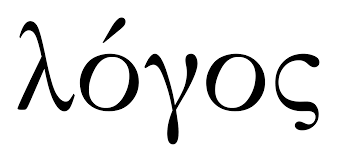We need to believe in the Word because we need faith as a compass for human decency, especially towards people who are unlike us.
Many in western societies believe that democratic or humanitarian ideals develop naturally as people become more enlightened or progressive. Don’t all the the most eminent lights of the media, academia and the good stars of Hollywood hold true to that?
Those that do espouse those ideas because they merely believe in them, not because they are smart or rich. They have faith, even if it’s not the religious kind.
A reality familiar to scientists and philosophers but but to very few people outside those disciplines is that there are no such things as natural moral facts. Humanitarian morality is not verifiable in any logical or scientific manner that makes themselves known to the learned. It is simply an enduring tradition of Judeo-Christian cultures to which “good” people adhere. To those who acknowledge no religious affiliation or belief, it is nothing but the copycatting of faith-based ethics.
Religious apologists often present that case in an awkward way that intends to justify a specific faith tradition. It goes something like, “You can’t have good without God,” or “the only way you can acknowledge goodness is to affirm the existence of God.”
That’s a twisted rendering of the argument. Of course you can be a good person without believing in or acknowledging the existence of God. What you can’t do is justify democratic or egalitarian ideals without a belief system that transcends nature. Not only are ideals like equality or compassion towards sick or disabled strangers not natural, they are specifically irrational and counter-evolutionary. They operate against natural principles, as when you save a lame gazelle from the clutch of a cheetah.
Nature is not humanitarian, and neither in our basest hard wiring are humans. Look no further than history. People live in hierarchically arranged societies among our own kind and ever suspicious of those unlike us, whom we have loathed and killed periodically. That continues to be the case for most societies around the world. Americans are often surprised to learn how closed most other societies are compared to the openness of ours and how nearly impossible it is for a foreigner to gain citizenship in them.
The only exceptions in history that have favored compassion and tolerance have been the ideals set forth in the religious faiths of Judaism, Islam, Christianity and others. When secularists boast that one can be good without God, it should be understood that their notion of “good” does indeed mimic the Abrahamic faiths.
The secular platitude that implores us to “just be a good person,” or “just be decent and kind,” is more vacuous and meaningless than most people realize.
Charismatic leaders who exploit our social wiring can twist the meaning of “good,” for utterly nefarious purposes. Under Adolph Hitler, Nazis and their sympathizers were being good Germans.
Being “good” in a universal sense in a way that looks out for the welfare of all children and the dignity of all life requires a higher consciousness — if not religion, then some other form of belief.
It requires belief in some form of the Logos, the Word.
